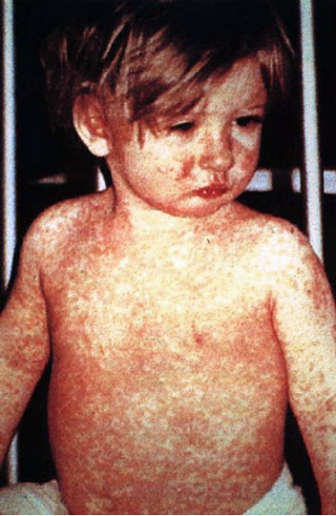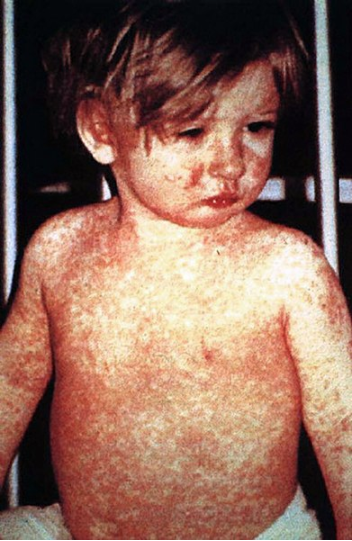The overall number of religious exemptions to vaccination for the state’s Kindergarteners increased by 25% between the last school year an the one before (from 2.0% to 2.5%), according to the state Department of Public Health.
“This represents the largest single year increase in religious exemptions for vaccination since the DPH started tracking the statewide data a decade ago,” the department said in a news release issued Thursday.
“As schools across Connecticut resume class this week, the Connecticut Department of Public Health (DPH) is reminding parents to make sure their child’s immunizations are up to date,” the announcement said.
Here’s the rest of the news release:
While the MMR [Measles Mumps and Rubella] immunization rate for Connecticut’s kindergarten students remains high, that rate declined from 96.5% for the 2017-2018 school year to a figure of 95.9% for the 2018-2019 school year, according to the state Department of Public Health data as of August 13, 2019, a decrease of 0.6%.

Photo from U.S. Centers for Disease Control
A child showing a classic Day 4 rash with measles.
This also continues a trend of steadily declining MMR vaccination rates among Connecticut kindergarteners since the 2015-2016 school year.
“As our children go back to school this week, it is important to have on the parental checklist that all vaccinations are up-to-date,” said DPH Commissioner Renée D. Coleman-Mitchell.
“Connecticut overall is meeting the guideline recommended by the Centers for Disease Control and Prevention that at least 95% of kindergarteners receive the MMR vaccine required for school attendance,” Coleman-Mitchell said.
“It does raise concern, however, that this number declined in the 2018-2019 school year while religious exemptions for vaccine-preventable diseases overall have increased. If parents have any questions about vaccinating their children, they should discuss them with their child’s primary care physician.”
“We want to make sure every school in Connecticut has a high enough percentage of immunized children to prevent a vaccine-preventable disease such as measles from spreading in a school environment.”
— DPH Commissioner Renée D. Coleman-Mitchell
High vaccination rates protect not only vaccinated children but also those who cannot or have not been vaccinated. This is called herd immunity. Schools that achieve herd immunity reduce the risk of outbreaks.
High vaccination rates at schools are especially important for medically fragile children. Some children have conditions that affect their immunity, such as illnesses that require chemotherapy.
These children cannot be safely vaccinated, and, at the same time, they are less able to fight off illness when they are infected. They depend on herd immunity for their health and their lives.
- Numbers of those Infected
- In the decade before 1963 when a vaccine became available, nearly all children got measles by the time they were 15 years of age. It is estimated 3 to 4 million people in the United States were infected each year.
- Also each year, among reported cases, an estimated 400 to 500 people died, 48,000 were hospitalized, and 1,000 suffered encephalitis (swelling of the brain) from measles.
- In 2019, the United States has seen the largest increase in the number of measles cases in the last 25 years.
- According to the Centers for Disease Control and Prevention, more than 1,215 people in 30 states had contracted measles between Jan. 1 and Aug. 22, 2019, including three cases in Connecticut and more than 1,000 in Brooklyn and Rockland County, New York.
“The resurgence of measles in the United States is of great public health concern,” Coleman-Mitchell said.
“When we released immunization rates by school this past May, my goal was twofold: to better inform parents of the vaccination rates in their children’s schools so they might protect their children; and to encourage higher rates of immunization overall. I know that this is especially important to parents whose children cannot be vaccinated for medical reasons.”
“The decline in vaccination rates and the increase in the number of religious exemptions validates the need to release immunization rates by county and by school for the 2018-2019 school year by Oct. 21, 2019,” she said.
More Information
- Anyone with questions regarding the Connecticut Vaccine Program can call 860-509-7929 or send an email to dph.immunizations@ct.gov.
- For more information about vaccine-preventable diseases, please visit this Connecticut Department of Health Web page.
_____________
State Senate Majority Leader Bob Duff, who represents part of Darien, issued this statement Thursday about the vaccination exemptions:
“I am concerned and alarmed that religious exemptions to vaccinations have increased by 25% and the vaccination rate children are receiving has dropped in Connecticut according to new data from the Department of Public Health.
“This trend is going in the wrong direction. We must continue to work with health professionals across the state to fight against misinformation from a vocal minority. The health and safety of our children should not be a political football.”

